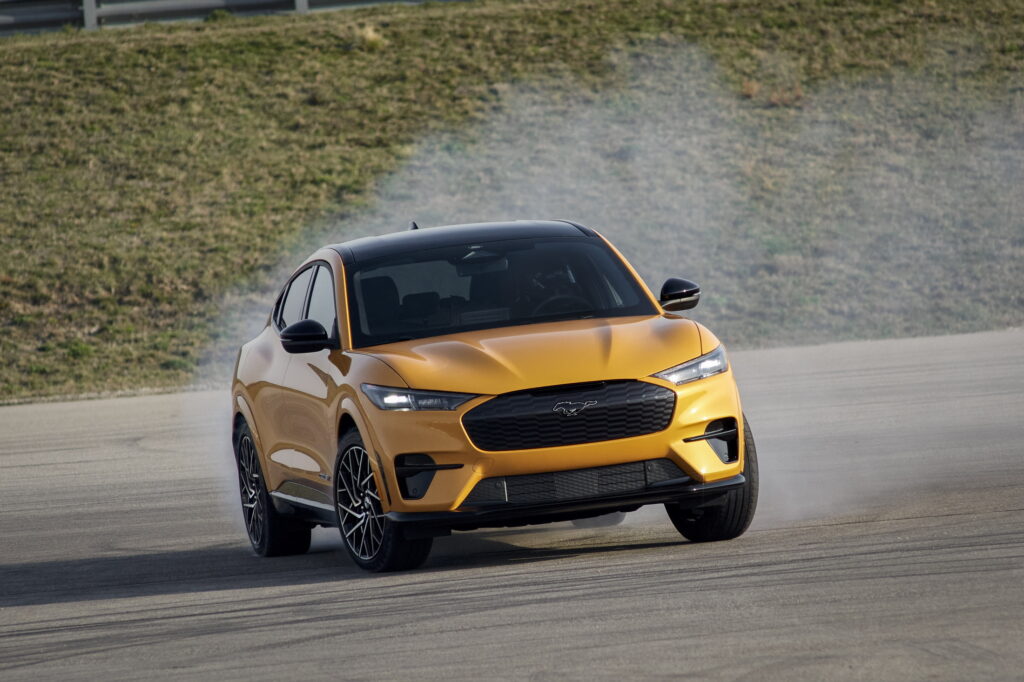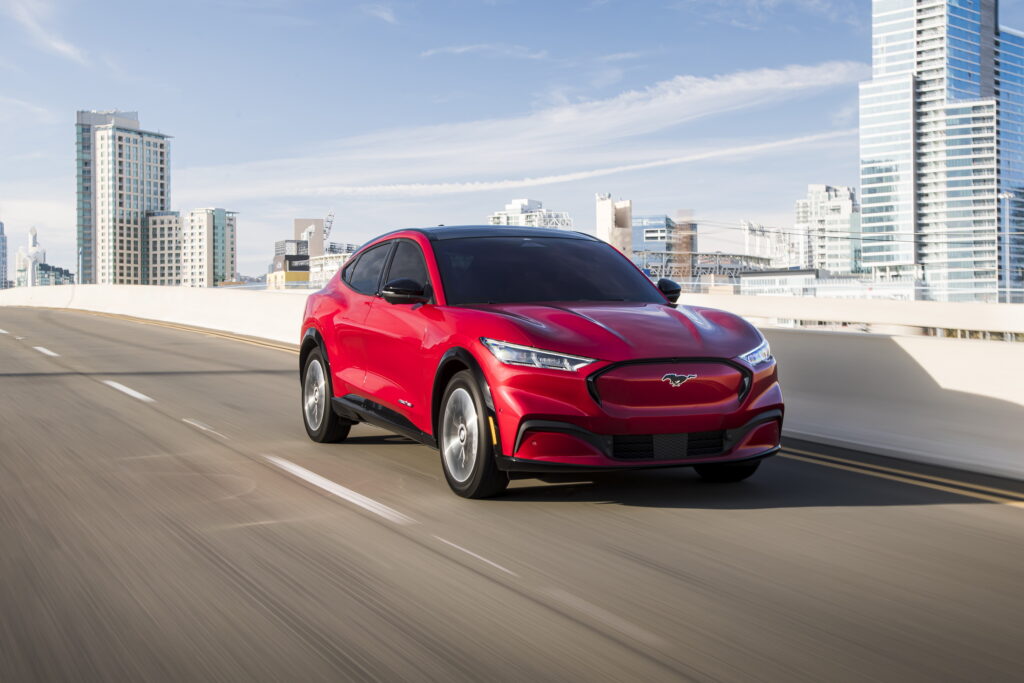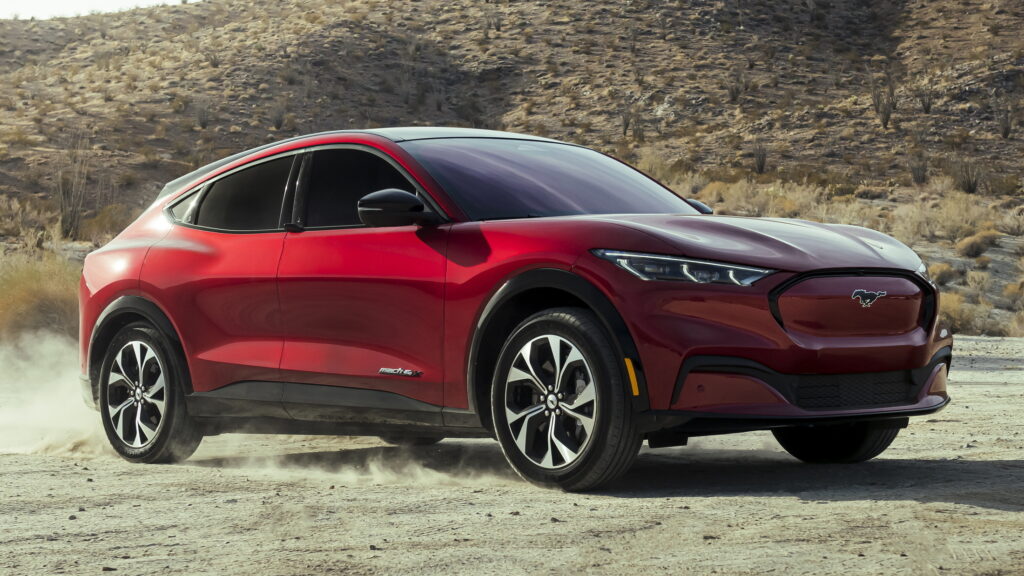In the summer of 2022, Ford launched a recall campaign for the Mustang Mach-E to fix an issue relating to overheating of the high-voltage battery’s main contactor. Now, federal regulators are questioning the efficacy of that action, following reports of continued problems.
Ford initiated its recall in June 2022, and said at the time an over-the-air software update would be sufficient to fix the issue. The problem related to the main battery contactors overheating, which could cause the electric crossover to simply shut down on the road.
Ford admitted at the time that the “design and part-to-part variation of the high voltage battery main contactor is not robust to the heat generated during DC fast charging and multiple wide open pedal events.” It determined that an over-the-air update which would help the vehicle monitor contactor temperatures and reduce power to prevent damage when necessary would solve whatever problems owners were experiencing.
More: Ford Issues Stop-Sale On Mustang Mach-E, Recalls 49,000 EVs Due To Potential Loss Of Power

However, consumers have continued to complain that their model year 2021-2022 Mustang Mach-Es are experiencing issues. The National Highway Traffic Safety Administration (NHTSA) says it has received 12 complaints alleging that their main contactors have failed.
In one case, a customer said that two days after receiving the software update, their vehicle suffered a second catastrophic failure in the battery connector, per Reuters. They were limited to 30 percent of available power until they made it to a dealership.
In another, a Florida Mach-E driver said that shortly after stopping at a DC fast-charging station, their vehicle advised them to “safely stop now.” The EV came to a halt in the middle of a highway on ramp, and would not restart for several hours.
Following the recall, Ford later issued a Technical Service Bulletin to replace the High Voltage Battery Junction Box on subject vehicles. This was given to some consumers who experienced a loss of power after receiving the recall fix to properly solve the issue, and NHTSA is now assessing the efficacy of the original software update.
This investigation could affect an estimated 64,727 vehicles. Ford is currently in the process of attempting to lose its title as the most frequently recalled brand in America, but investigations like these are unlikely to help it drop that reputation.





